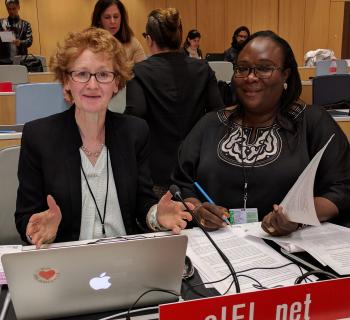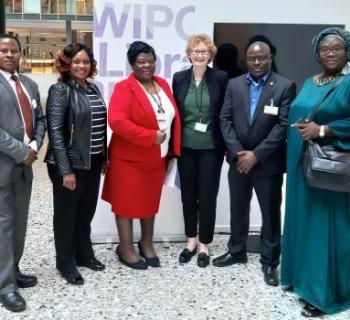
26 – the number of EIFL copyright coordinators from Armenia to Zimbabwe.

Copyright matters to libraries. It affects issues that are central to library activities and services, such as the availability and price of books, the right to purchase books from abroad, the right to lend books and other materials. Copyright law regulates important library responsibilities such as preserving cultural heritage, providing access to resources for education and research, and producing information in formats that can be accessed by people with disabilities.
As librarians increasingly find themselves faced with questions on copyright through their everyday work managing access to print and digital content, they need to be informed about copyright law in general, the aspects of copyright law that most affect libraries, and how librarians can most effectively participate in the processes by which copyright law is developed.
Librarians are also called to draw upon their knowledge from daily experience to inform other librarians, students and faculty about copyright law. With institutional goals to enable the advancement of knowledge, librarians have a unique perspective and a professional role to engage with policy-makers so that the legal framework supports access to knowledge and the public interest.
The Copyright and Libraries Programme (EIFL-IP) builds capacity among librarians in EIFL-partner countries through the provision of resources and training in copyright issues to empower librarians to become advocates for access to knowledge for all.

Copyright is not an easy subject; we believed it was for lawyers. Now we realize that as librarians we can take part in reviewing laws and be successful in recommending changes.
26 – the number of EIFL copyright coordinators from Armenia to Zimbabwe.
The EIFL Core Library Exceptions Checklist sets out provisions that every copyright law should have to support library activities and services.